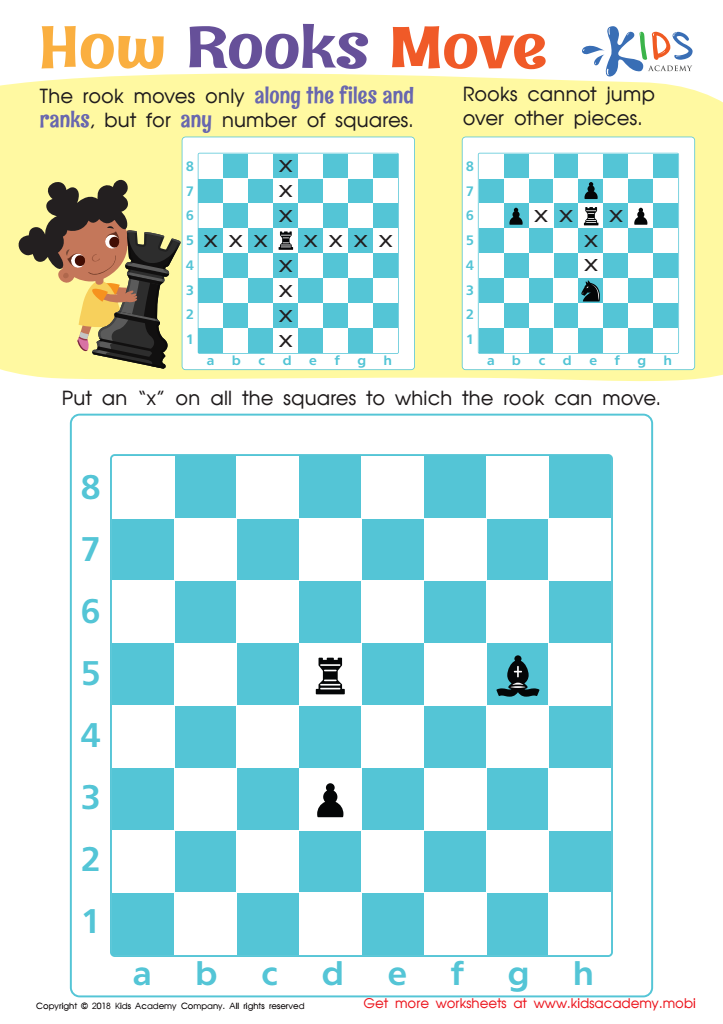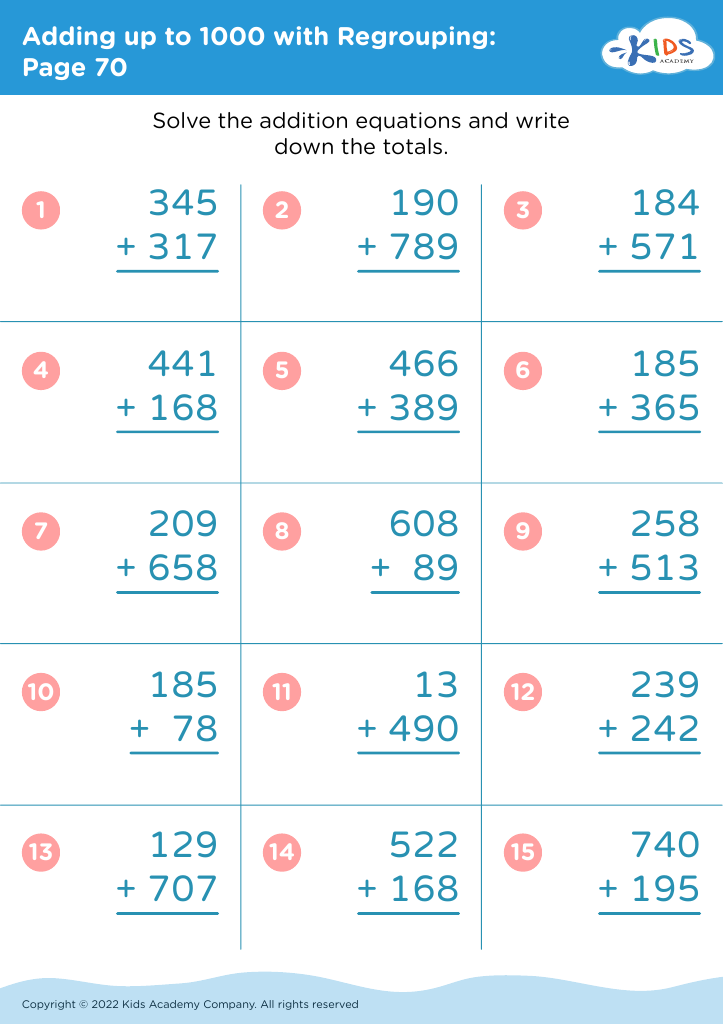Developing logic skills Worksheets for Ages 6-7
4 filtered results
-
From - To
Discover an engaging collection of "Developing Logic Skills Worksheets for Ages 6-7" designed to enhance critical thinking in young learners. Our worksheets offer a variety of fun activities that challenge students to solve puzzles, improve reasoning ability, and develop problem-solving skills. Your child will enjoy colorful exercises that encourage logical thinking through shapes, patterns, and sequences. These resources are perfect for classrooms or home learning environments, helping students build a strong foundation for future academic success. Grab these enriching worksheets today and watch your child's confidence and skills grow! Explore the potential of young minds through our tailored logic skill activities.


How Rooks Move Worksheet
Developing logic skills in children aged 6-7 is crucial for their overall cognitive development and future learning experiences. At this age, children are naturally curious and eager to explore concepts beyond their immediate understanding. Enhancing their logic skills helps them develop critical thinking, problem-solving abilities, and the capacity to recognize patterns, all of which are foundational for academic success across various subjects, especially math and science.
Teaching logic fosters better decision-making, improves communication skills, and encourages independent thinking. Children learn to analyze situations, anticipate outcomes, and justify their reasoning, which builds confidence in their abilities to tackle challenges. These skills also promote curiosity, pushing them to ask meaningful questions about the world around them.
For parents and teachers, supporting the development of logic skills prepares children for more complex learning tasks they will encounter in later grades. Engaging them in activities that challenge their reasoning, such as puzzles, games, and open-ended questions, lays the groundwork for lifelong analytical skills.
Ultimately, nurturing logic skills enriches children's educational experiences, preparing them not only for academic proficiency but also for effective navigation through everyday decisions and social interactions, making it an instrumental aspect of early childhood education.

 Assign to My Students
Assign to My Students


















